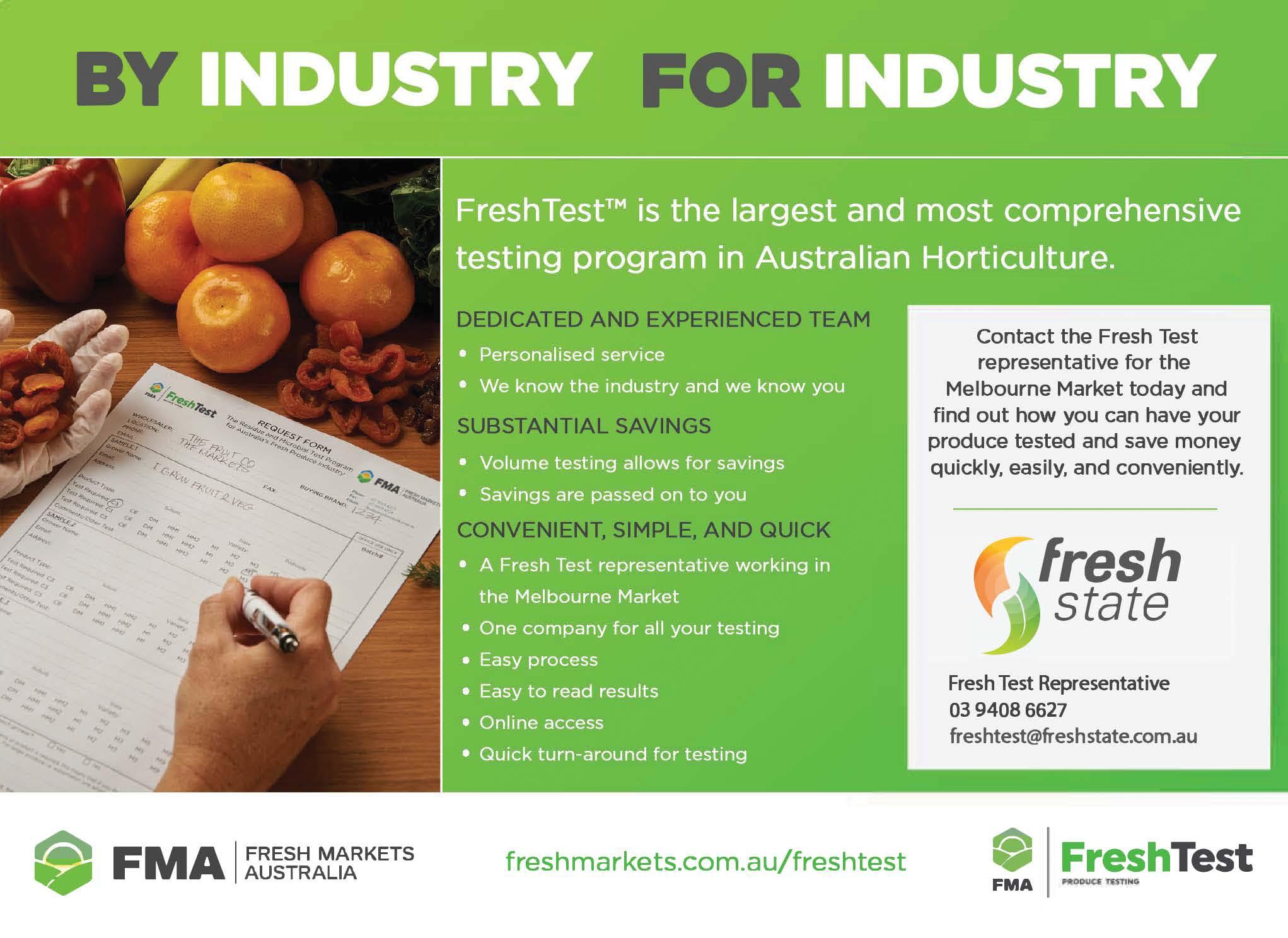
3 minute read
Health crisis continues for exporters and importers
Health crisis continues for exporters and importers
By : AndréaMagiafoglou
It is with caution we await the Second Quarter trade data fo r horticulture exports where the true impact of Covid-19 on Australia’s horticultu ral exports is likely to manifest. Since the Covid-19 crisis commenced, Australian airfreight capacity was down as much as 91% on pre-covid levels. Additional f lights have since commenced commercially and extra support via the International Freight Assistance Mechanism (IFAM) have seen this figure m ove to 68% down from pre-covid levels. Increased capacity is anticipated on ce international borders reopen for passenger movement.
As of late May, IFAM has uplifted over 25,000 tonnes of agricultural and seafood products via 1,000 flights to 28 international destinations. The Government funding initiative to support agricultural exports has been widely welcomed, however, despite the volume of cargo horticulture exporters have reported limited uptake. As of late May, fresh fruit and vegetables represent approximately 10% of total cargo sent through the Mechanism. Due to the nature of fresh produce supplies, a challenge for exporters has been booking and meeting capacity requirements, and at a cost that remains competitive in the global marketplace. At current expenditure, the original $110M assistance provided by the Federal Government is expected to be fully expended by the week of 12th July 2020. With reduced airfreight capacity likely to continue for some time yet, focus is now on a Cabinet submission made by the Minister for Trade, Tourism and Investment, Senator the Hon Simon Birmingham, and Minister for Agriculture, Drought and Emergency Management, The Hon David Littleproud MP, to extend IFAM beyond the current funding period. It is clear that horticulture has a strong need for ongoing support for fresh produce exports that are airfreight-reliant, particularly moving into the second half of 2020 and early 2021. The International Freight Coordinator General of IFAM, Michael Byrne, reported that the challenges for exporters of fresh fruits and vegetables, in particular the price sensitivity that impacts on greater uptake of IFAM for horticulture producers, has been taken into consideration in this Cabinet submission. Beyond airfreight, the impacts of Covid-19 have resulted in a slowdown in supply chains in general, and similar to within Australia, demand from food services overseas has been affected, with reduced pricing reported in some markets. Seafreight has not been immune either, with shipping affected by congestion surcharges, reduced reefer availability and delayed clearance times. Depending on how each government is responding to Covid-19, the impact varies across markets and requires Australian horticultural exporters to be flexible and adaptive in response. Alleviating some of the challenges in the current Covid-19 environment is the welcome news that increases to export certification fees and charges proposed by DAWE have been shelved. Previously the Department had indicated an implementation date of 1 July 2020. These substantial increases were strongly opposed by industry and resulted in a united cross-horticulture submission by key industry representative bodies and members of the Department’s Horticulture Export Industry Consultative Committee. AHEIA will continue to work with peak industry bodies to oppose any future fee increases and advocate for the adoption of recommendations outlined in the cross-horticulture industry submission.
Further on export processes, the Department of Agriculture, Water and the Environment (DAWE) is in the process of updating and modernising the legislative framework to consolidate and streamline existing export legislation. The Draft Plant and Plant Product Rules, which will support the Export Control Act 2020, is currently open for public consultation until mid-June 2020, followed by a second round of consultation towards the end of 2020. Several changes have been proposed, including extra functions associated with Export Permits to cover activities between export and acceptance of a consignment by the importing country. This new legislation is expected to commence on 28 March 2021. The AHEIA is a non-governmental and notfor-profit organisation, with a primary focus on advocacy to enhance the trade of horticultural produce in and out of Australia. For any membership queries, contact AHEIA staff at
admin@horticulturetrade.com.au.











